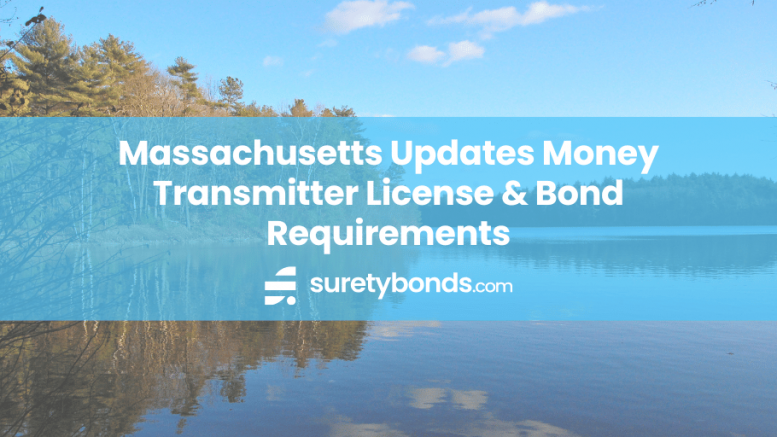In January 2025, Massachusetts Governor, Maura Healy, approved House Bill 4840, or the Money Transmission Act (MTA). The bill increases the required bond amount and expands licensing requirements.
Key Updates
- Increases minimum bond amount from $50k to $100k
- Expands licensing requirement to include domestic money transmitters
- Goes into effect on October 1, 2025
Why did the requirements change?
Massachusetts is the 29th state to begin regulating domestic money transmission, marking a country-wide trend in increased regulation. The MTA is closely related to the nationwide Model Money Transmission Modernization Act (Model Act).
Increased regulation is meant to help protect consumers, especially those transferring money through payment apps, such as Venmo or Paypal, from fraud. The bill also regulates businesses such as investment firms and FinTech companies that offer banking and financial services.
Are ALL money transmitters now required to get licensed?
No, not all Massachusetts money transmitters need a license. There are a few exemptions, including:
- A person collecting and processing payment from one party to another for goods or services
- A person acting as an intermediary between an entity that has an outstanding money transmission obligation to another party
- A person that is expressly appointed as a third-party service provider of a financial institution
Massachusetts remains one of the five states that regulates only consumer transactions. If you are unsure if you’re exempt from the new licensing requirements, review Chapter 169B of Act 4840.
What are the new bond requirements?
The bond requirements for licensed money transmitters have also changed. Now, all money transmitters need a surety bond that is either $100,000 or 100% of their average daily money transmission liability over a 3-month period (capped at $500,000), whichever amount is greater.
This is an increase from the previous bond requirement, which was $50,000 or twice the average weekly amount transmitted.
SuretyBonds.com works with authorized surety companies so that transmitters can get the correct bond required for their license application. Apply online today to get your free quote or call (800) 308-4358.
How and when do I get licensed?
All domestic money transmitters that are not currently licensed in Massachusetts must file for a license by July 1, 2025 to continue providing services.
Transmitters do not have to stop working while they wait for their license approval. Once the application is submitted, transmitters can continue working until they receive an approval or denial.
Licensed transmitters simply have to update their bond amount at renewal.
Next Steps
Ensure that you have met the new requirements by October 1, 2025 if you are a newly licensed domestic transmitter, or when you renew your license as a foreign transmitter.
For more information, refer to Bill 4840 or call (800) 308-4358 to speak with one of our friendly surety experts.
